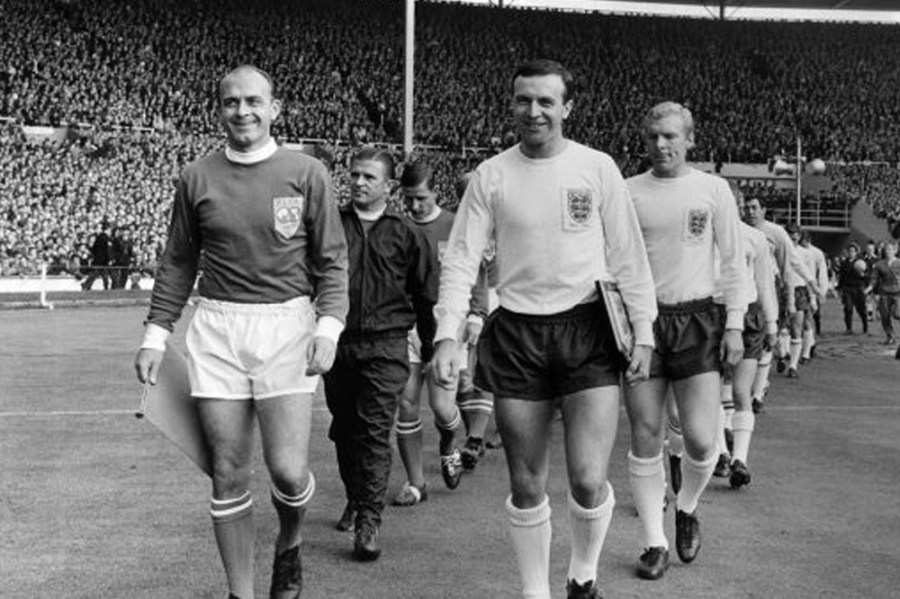Jimmy Armfield, a cut above his contemporaries
Two sad deaths. Of Cyrille Regis, whom I admired but never knew, at the sadly early age of 59. Of Jimmy Armfield, whom I knew for so many years, at the age of 82. A footballer and a gentleman, you might say.
Regis was that splendid rarity these days, when children of seven or nine are snapped up by voracious clubs. He came off building sites where he was working as an electrical engineer, aged 19, to galvanise the West Bromwich Albion attack and shrug off the vicious racist abuse to which black players were exposed in those horribly bigoted days.
Armfield, educationally, was a cut above most his playing contemporaries. He was thoughtful, intelligent, humorous and a splendid right-back. He played in the Chilean World Cup but in the victorious 1966 tournament when his place at right-back went to George Cohen.
How well I remember sitting next to him at the Bank of England training grounds around the time of the World Cup quarter-finals. What chance did England have, I asked him. “Slight,” he said, depressingly, but luckily he was proved wrong which doubtless delighted him.
He was a grammar school boy, always fluent, composed and mature. Even in the midst of a tumultous Press room in Barcelona when Leeds United, whom he was managing capably at the time, contested a European Cup semi-final. A room from which Robert Vergna, the noted correspondent of France Football, was led away by the police in chains, having kicked out at a local radio commentator. Who luckily for him nobly refused to press charges.
************************
Last Saturday at half-time on the pitch at Queens Park Rangers a long list was read out of QPR players who had died or grown old with Regis, mysteriously, the last of them all. But there was a major omission, which I lamented and discussed with a loyal QPR supporter whom I had known for many years. No reference at all to Reg Allen.
I well remember, towards the end of the war, when as a schoolboy fan I praised the QPR keeper Harry Brown. To be told by another fan that I should wait and see Reg Allen. Due to be returned from a German prisoner-of-war camp, Allen had been captured as a commando, and when he did at last come back, he was instantly impressive. So much so that the Marylebone-born keeper was expensively transferred to Manchester United.
It was when they had played a match at Charlton Athletic that I met him in the dressing room corridor, where he gave me an autograph for a schoolboy for whom I was then collecting. I mentioned the several years in which he had been imprisoned and, smiling, he reflected whether several was the right word. But alas those words had doomed him and tragically, while still a fine player, he committed suicide.
For what it is worth, let him at least be remembered here.
********************************
What price target men? There seems to be at Chelsea a clash of tactical philosophies. Last weekend Chelsea without a recognised spearhead went down to Brighton and romped home with what some thought to be their best display of the season.
Eden Hazard, that hugely talented Belgian, came off the wing into the centre, excelled and scored twice. Afterwards, though speaking retrospectively of the usual centre-forward Alvaro Morata, suspended, Hazard emphasised that it was perfectly possible to play without a recognised target man as indeed had just been abundantly proved.
His manager Antonio Conte, by contrast, was wholly of the other opinion, insisting that there was need of a striker who could be a focal point. Which one assumed was the reason why against what seemed all logic, Chelsea had been preparing to acquire West Ham’s Andy Carroll, a classical centre-forward feeding on crosses and the long ball; but presently injured.
Peter Crouch had also reportedly been in Conte’s sights, despite his age. I think Hazard proved his point at Brighton pretty thoroughly but since Chelsea paid so much money for Morata, one assumes he will shortly be back again.
*****************************
Alexis Sanchez is perfectly right, however much he earns, to deny that he is a mercenary. And if he is, so are the enormous majority of footballers playing professionally today. Problem: spot whom you might call the altruist. Any advance on Arsenal’s Jack Wilshere?







